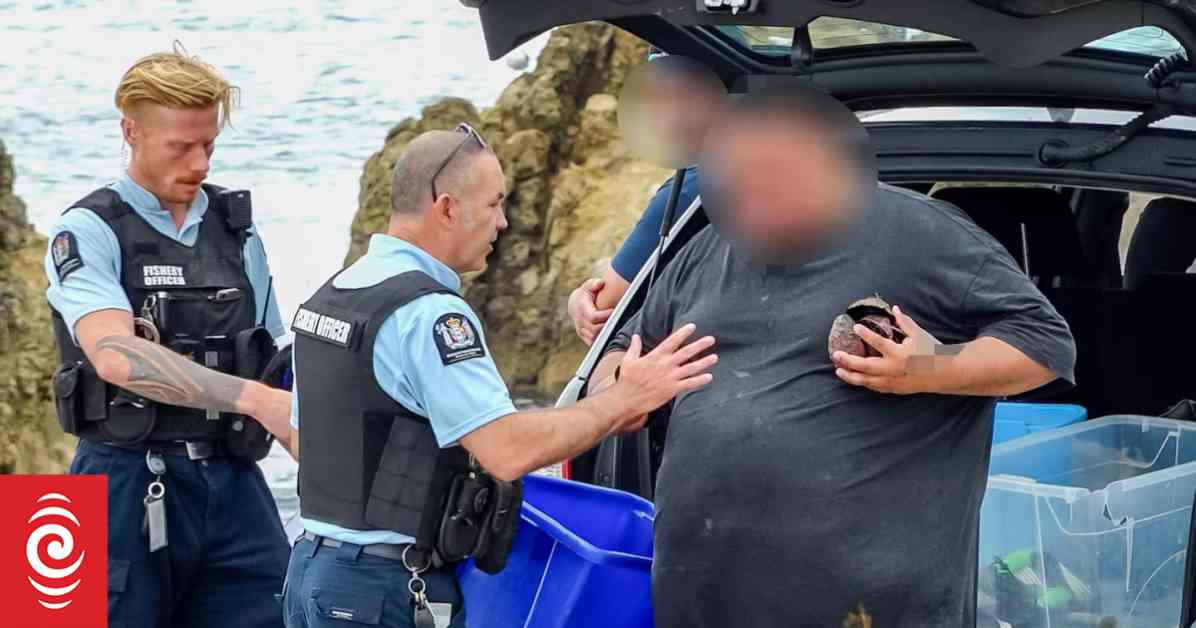Man Throws Pāua Back into Ocean During Standoff: Police Called
In a dramatic turn of events on Wellington’s coast, a man was caught red-handed with undersized pāua in his car boot by Fisheries officers Allan Gilmour and Korban Aitken. What started as a routine check on a group of friends diving in the shallows quickly escalated into a standoff when the man tried to dispose of the evidence by tossing the pāua back into the ocean. This brazen act led to a tense situation, prompting the officers to call the police for assistance.
Escalating Tensions and Police Intervention
As the standoff unfolded, more police cars arrived on the scene, with a total of eight constables present to assess the situation. The man’s attempt to evade responsibility by returning the pāua to the sea backfired, resulting in him being summonsed for an interview with Aitken and Gilmour the following week. Despite the overbearing police presence, half of the officers deemed unnecessary eventually left, leaving the man to face the consequences of his actions.
Policing Wellington’s Fisheries and Poaching Incidents
Aitken and Gilmour shed light on the challenges they face in policing Wellington’s vast fishery area, where poaching incidents involving pāua, kina, crayfish, and scallops are prevalent. They recount their encounters with brazen offenders who exploit the system for financial gain, stockpiling illegally harvested seafood for sale in the black market, particularly in Auckland. Gang involvement adds another layer of complexity to their work, with some offenders repeatedly flouting the rules despite previous run-ins with the law.
Enforcing Catch Limits and Fishery Regulations
The officers emphasize the importance of enforcing species limits and catch regulations to preserve marine resources and prevent overexploitation. They explain the penalties for breaching these limits, such as fines and confiscation of gear, as well as the impounding of vehicles used in illegal harvesting activities. Despite facing resistance and hostility from offenders, the officers prioritize de-escalation tactics to diffuse confrontational situations and ensure their safety while on duty.
As the man’s fate hangs in the balance, awaiting a decision from the Ministry for Primary Industries legal team, the incident serves as a stark reminder of the ongoing battle against poaching and unlawful fishing practices in New Zealand’s coastal waters. The delicate balance between conservation and enforcement underscores the critical role of Fisheries officers in safeguarding marine ecosystems for future generations.

















